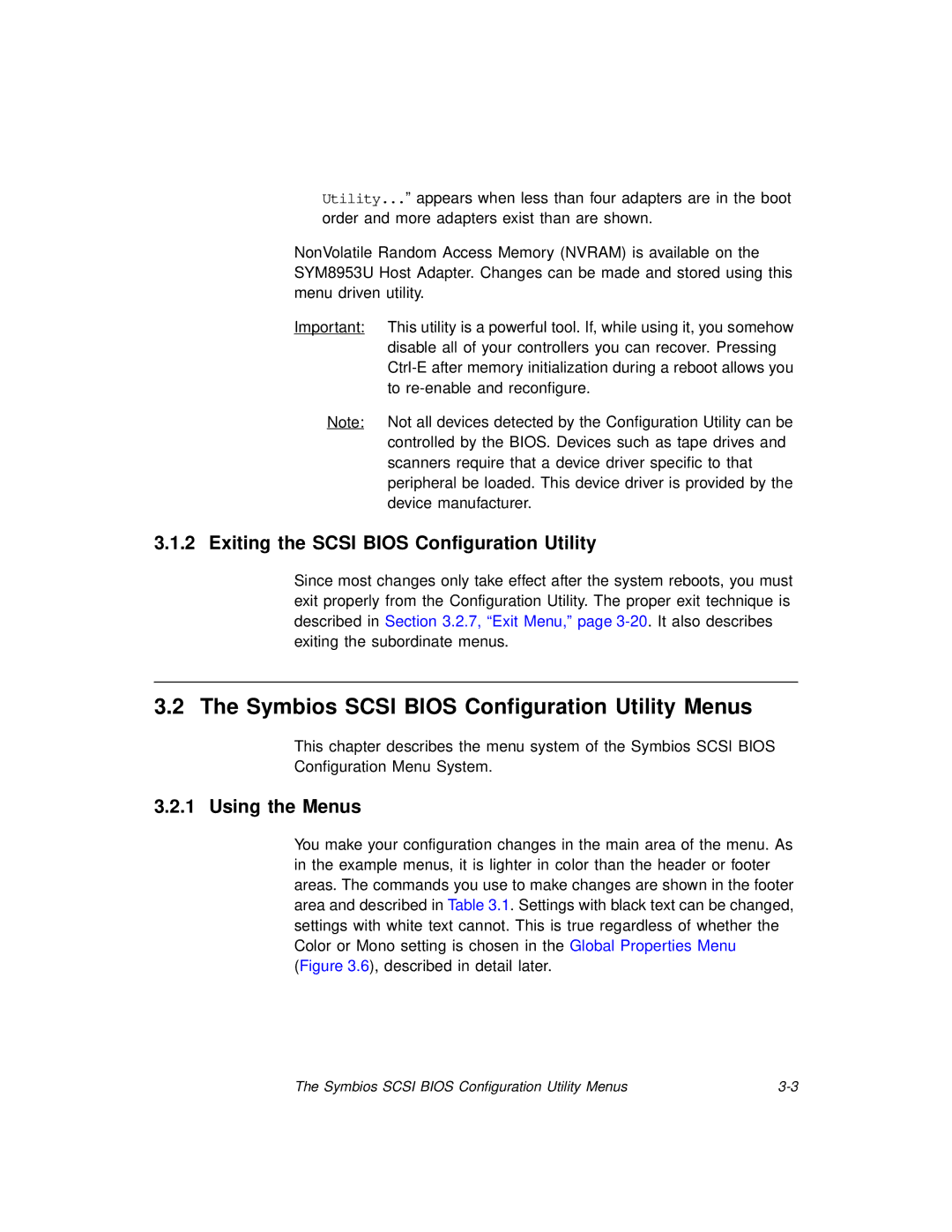Utility...” appears when less than four adapters are in the boot order and more adapters exist than are shown.
NonVolatile Random Access Memory (NVRAM) is available on the SYM8953U Host Adapter. Changes can be made and stored using this menu driven utility.
Important: This utility is a powerful tool. If, while using it, you somehow disable all of your controllers you can recover. Pressing
Note: Not all devices detected by the Configuration Utility can be controlled by the BIOS. Devices such as tape drives and scanners require that a device driver specific to that peripheral be loaded. This device driver is provided by the device manufacturer.
3.1.2 Exiting the SCSI BIOS Configuration Utility
Since most changes only take effect after the system reboots, you must exit properly from the Configuration Utility. The proper exit technique is described in Section 3.2.7, “Exit Menu,” page
3.2 The Symbios SCSI BIOS Configuration Utility Menus
This chapter describes the menu system of the Symbios SCSI BIOS Configuration Menu System.
3.2.1 Using the Menus
You make your configuration changes in the main area of the menu. As in the example menus, it is lighter in color than the header or footer areas. The commands you use to make changes are shown in the footer area and described in Table 3.1. Settings with black text can be changed, settings with white text cannot. This is true regardless of whether the Color or Mono setting is chosen in the Global Properties Menu (Figure 3.6), described in detail later.
The Symbios SCSI BIOS Configuration Utility Menus |
